A cough is a forced exhalation aimed at removing an obstruction (irritant) in the airways. Cough can be a manifestation of various diseases.
Many mothers have experienced this symptom more than once. Therefore, a detailed answer to the question of how to treat children's cough will be of interest to both experienced and novice parents.
Causes of a cough
Cough is just a symptom that accompanies the following diseases or conditions:
- the presence of a foreign body in the upper respiratory tract;
- allergic reaction;
- tuberculosis;
- helminthic invasion;
- complications of viral infections;
- ENT pathology;
- chronic diseases of the respiratory system;
- dry air in the living room;
- stress.
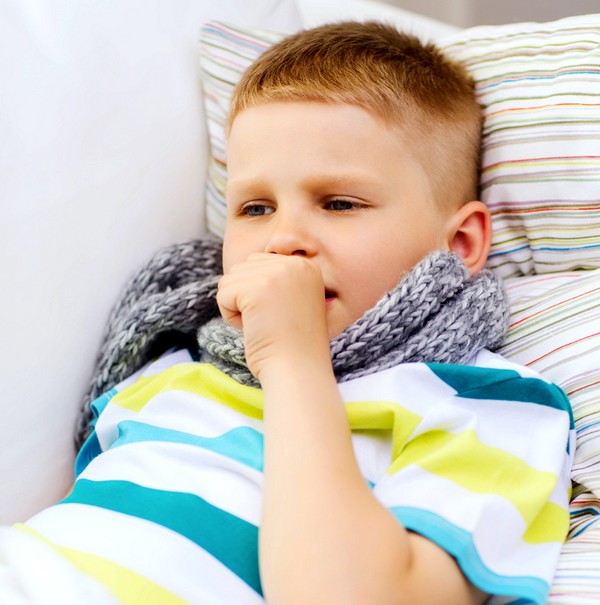
How to treat a children's cough at home can be understood by knowing the cause of this symptom. For example, if the onset of a cough was preceded by contact with a certain allergen (animal dander, book dust, plant pollen, chocolate, seafood), the interaction of the child with the irritant should be completely excluded. It is helpful to do the following:
- daily wet cleaning;
- hypoallergenic diet;
- removal of carpets, massive bedspreads, curtains, soft toys.
After an allergy test, an allergist will recommend an antihistamine and a further treatment plan.
Dry indoor air can be easily dealt with with a household humidifier or damp blankets, large containers of water. The optimal humidity level in the room is 50-70%.
Attention! The cough may be wet (with sputum) or dry (unproductive, no sputum). The nature of the cough determines the method of treatment.
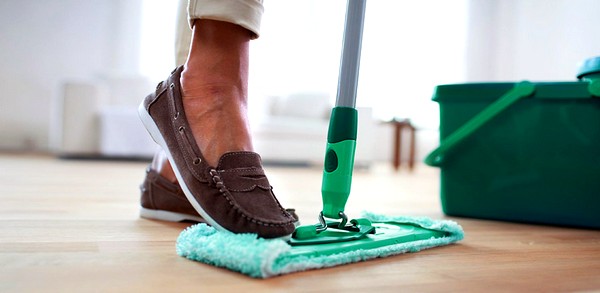
Main groups medicinal products when coughing
All medicines used for coughing are divided into the following groups:
- suppressive cough;
- mucolytics;
- expectorants;
- antibiotics;
- medicinal herbs.
Physiotherapeutic methods of treatment, recipes are also used traditional medicine and massage.
Antitussive drugs are used only when a debilitating cough does not allow the baby to fall asleep. These include substances of central action - Glaucin, Libeksin.
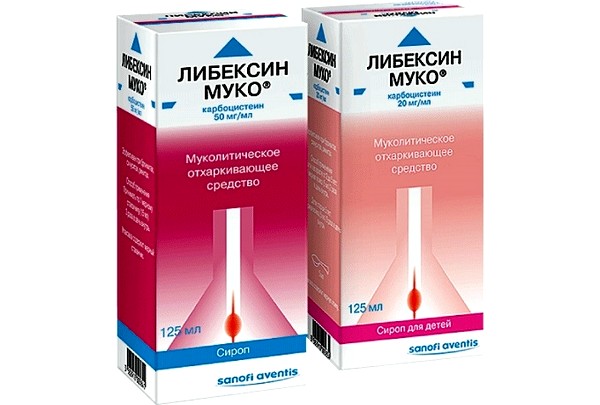
Mucolytics are used for wet (wet) coughs, they dilute sputum. The most commonly used tools in this group
- Ambroxol;
- Acetylcysteine;
- Bromhexine;
- Ambrobene;
- Lazolvan.
Expectorants make it easier to expel mucus. The following drugs are often used:
- Mukaltin;
- Pertussin;
- Solutan.
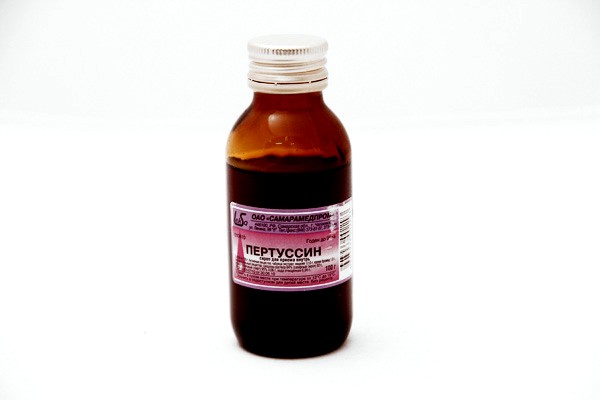
Infusions, decoctions, syrups created in factory conditions based on herbs also have expectorant properties. For example, Gedelix is an expectorant based on ivy. It should be noted that an overdose of these drugs for children is very dangerous, since the insufficiently mature muscles of the respiratory tract in babies with an abundant amount of sputum are not always able to cope with the removal of such a volume of fluid from the bronchi.
Important! Antibiotics are prescribed only by a doctor, depending on the type of disease.
Often, sputum is examined to determine the causative agent of the disease in order to prescribe the most effective antibiotic therapy.
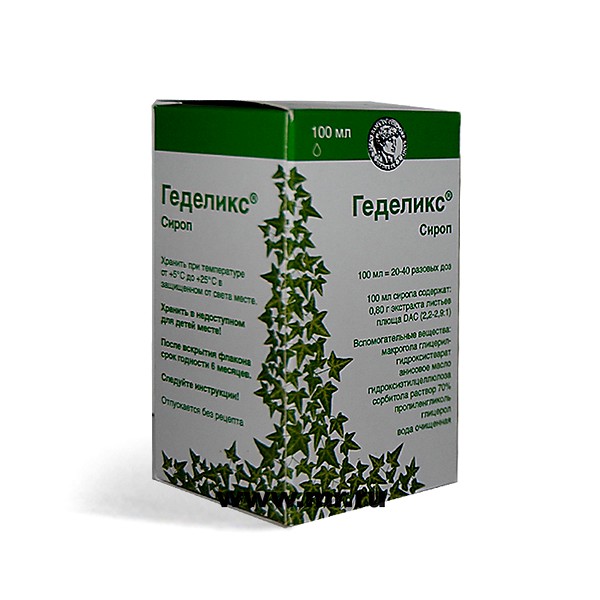
Folk remedies
How to treat a wet or dry children's cough, only a specialist knows who will competently recommend a drug. However, there are situations when it is not possible to get advice. Then there is nothing left but to treat children's cough, applying folk remedies.
Among the methods of traditional medicine for getting rid of a cough, the following groups are schematically distinguished:
- inhalation;
- medicinal herbs;
- compresses.
Inhalations
Steam inhalation is used for coughing to improve sputum discharge. We recommend an aqueous solution of soda (20 g per 1 liter of water), alkaline mineral water or a decoction of coltsfoot, chamomile, thyme (brewed according to package instructions). The water temperature varies: for children younger than a year, the temperature of the inhalation solution should not be higher than 30˚C, for older children - 30-40˚C. Boiling water is not used for these purposes! The procedure lasts no more than 3 minutes twice a day and is carried out only under the supervision of an adult.
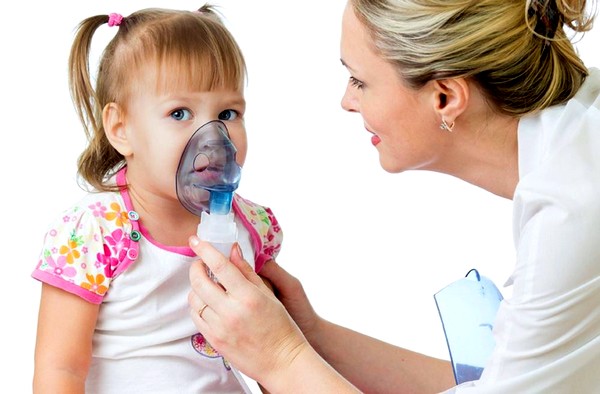
Optimal for inhalation will be the use of a nebulizer - a compression or ultrasonic inhaler. Inhalations with the help of this device allow the penetration of medicinal substances in higher concentrations even into distant parts of the bronchi. The simplicity of the procedure makes it possible to carry out inhalations even for the smallest children and for diseases of the bronchi and lungs.
On a note! Cough treatment must be accompanied by an adequate amount of fluids to drink (warm fruit drink, decoction, weak tea based on herbs, favorite juices).
Compresses
Compresses are among the most effective distracting procedures, in which there is an increase in local blood circulation, due to which the muscles of the respiratory tract relax (bronchospasm is relieved), and coughing decreases. Types of compresses for coughing:
- Curd compress. Put the squeezed cottage cheese in gauze on the chest of the child, tie it with a warm shawl, leave for half an hour.
- Oil compress. Heat the vegetable oil to a comfortable warm state, moisten a towel in it, wring it out, wrap the child's chest. Top - cotton fabric and a woolen scarf (preferably a shawl). Before going to bed, give a diaphoretic decoction to drink, at night, with increased sweating, change the baby into dry pajamas.
- Potato compress. Boiled "in uniform" unpeeled potatoes (2 pieces) mash with a fork, put in several layers of dense tissue, wrap the child's chest. Feelings should be pleasant. Then, as the temperature of the compress decreases, remove the layers of tissue. The compress is placed for 1 hour.
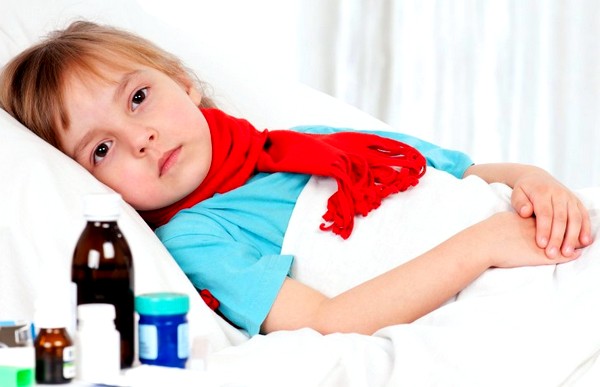
Compresses can be used if the body temperature is not higher than subfebrile.
The use of medicinal herbs
How to effectively treat a children's cough is decoctions and infusions of herbs. They were used by our ancestors. The following prescriptions are valid:
- Boil 200 ml of milk with 1 tbsp. l. sage herbs, cover for 10 minutes. After straining, cool to a warm state, add 5 g of honey (if there is no allergy to honey!) And 5 g butter, mix. Give your child a drink before bed.
- Bring 30 g of anise seeds to a boil with 200 ml of water. Infuse for an hour, after straining, put 15 g of honey, stir thoroughly. Take every hour for 1 tbsp. l. In case of allergies - exclude honey from the composition of the product. This remedy will especially help those who are wondering how to treat a nocturnal dry cough in children.
- 5 g of marshmallow roots, 5 g of licorice roots and 5 g of elecampane roots are combined and poured with cold water (0.5 l). After insisting for 9 hours, take 50 ml three times a day.
- Combine 15 g of chopped thyme herb with 200 ml of boiling water. Insist 10 minutes. Take 3 ml 6 times a day.
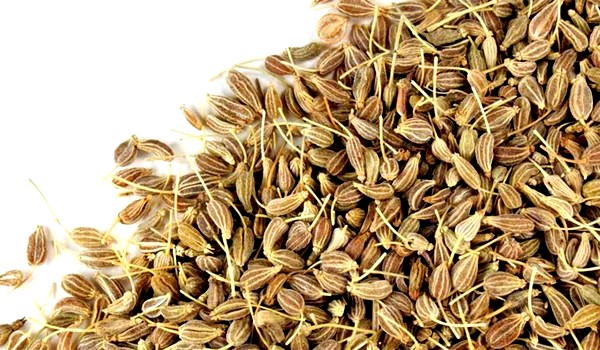
Onion and radish - help with cough
No less popular among the people are cough remedies based on onions:
- Mix the chopped onion with 30 g of sugar. After overnight infusion, take the resulting syrup, 7 ml hourly.
- Chop 500 g of white onion, bring to a boil in a liter of water. After 3 hours, add 50 g of honey. Take 1/3 cup three times a day. Store in a cool place.
- Combine 50 g of chopped onion with a glass of hot milk. After insisting for an hour, strain, heat, add 1/2 tsp. butter. Drink 7 ml every hour.
Black radish is a popular favorite in the treatment of cough. Wash the radish, make a hole in the form of a funnel with a knife, pour honey or sugar (if the child is allergic). After a few hours, a syrup is formed, which must be taken 3 ml every hour. The empty funnel is again filled with honey, and so on, until the juice in the radish dries up.
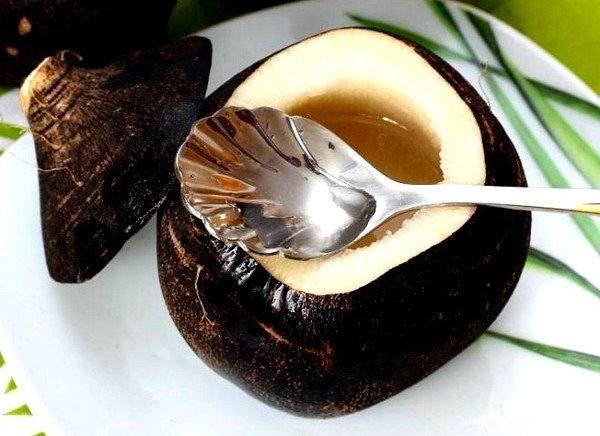
In conclusion, we can add that these simple rules will help the speedy recovery of the child and cure cough:
- Do not restrict the movement of the baby, so as not to cause congestion in the lungs.
- Humidify the air in the room with a humidifier or wet towels.
- Gentle back and foot massage.
- Regularly ventilate the rooms where the child is.
- Maintain optimal air temperature in the bedroom (18-20˚C) and in the playroom (22-23˚C).
When a child is sick, there is nothing worse than this. Parents do not find a place for themselves, even if the baby has a common cold. Young mothers are especially nervous when the baby begins to cough. Today we will talk about such a problem as coughing in children. We will discuss the causes that cause it and how to treat it.
Causes of a cough in a child
Cough is a normal reaction of the body to dust and microscopic foreign bodies. Designed to expel debris that has entered the respiratory tract of a person. In the lungs is sputum, a substance secreted by the body to fight bacteria, dead cells of the epithelium. That is, the direct cause of coughing are viruses and bacteria. If there is a disease in the body, the amount of sputum varies. It can become too much or very little. Based on this, a dry and wet cough is distinguished.
Dry is considered unproductive, as there is no sputum that could remove excess bacteria from the body. With a wet cough, which can be recognized by a specific sound resembling a gurgle, excess sputum leaves the respiratory tract naturally. And a person can only spit it. Small children do not know how to spit out sputum, but swallow it back. Therefore, all bacteria disease-causing remain in the body. This is the whole complexity of children's cough.
Cough can talk about the following pathologies in the child's body:
- inflammatory processes in the nasopharynx - adenoids;
- ARI, which in turn can lead to bronchitis, tracheitis or pneumonia;
- children's allergies;
- infections - measles, whooping cough;
- debris that clogged the respiratory tract, the same dust;
- tuberculosis;
- disorders in the body of a nervous nature;
- respiratory pathology.
Cough without fever - causes
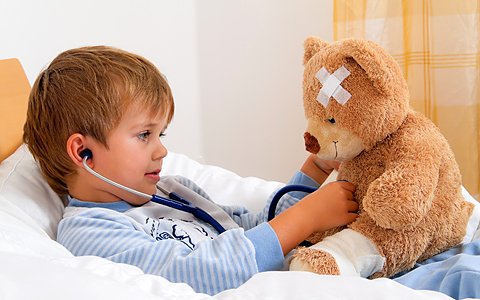
It is a mistake to think that a cough without fever is harmless. On the contrary, he is very dangerous. Since it indicates a latent disease.
Diseases that are accompanied by a cough without fever:
- Internal inflammation or allergy. Often accompanied by sneezing and runny nose.
- Heart failure. Especially when lying down or after exercise.
- Bad ecology.
- Papillomas in the larynx.
- The beginning of a venereal disease. Accompanied by itching and rash.
- Pneumonia, bronchitis, tracheitis. As a consequence of the transferred ARVI.
- False croup.
- Tuberculosis.
Only a specialist can determine the exact cause of the cough. Do not try to be treated at home, immediately contact the clinic.
Treatment of dry cough in children
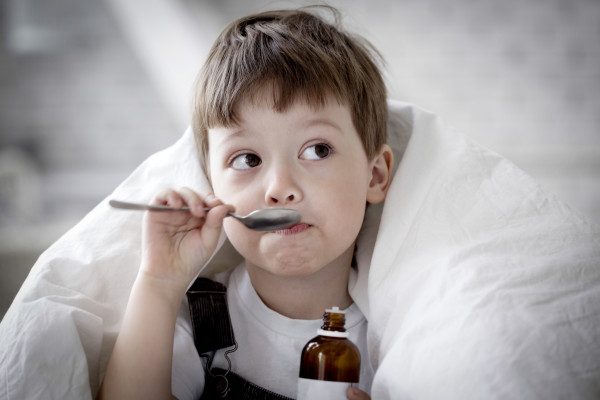
It is quite simple to understand that a child has a dry cough, which means that sputum is not expectorated and the infection is not washed out of the lungs. By the sound, it resembles barking, nothing wheezes or gurgles in the child’s chest.
Before starting treatment, it is necessary to accurately establish the cause of dry cough. Most often this is a consequence of a viral disease. But a dry cough can also be caused by an infection, such as measles. It is also not uncommon for an unproductive cough to be a herald of an allergy.
- bed rest;
- plentiful warm drink, fruit drinks and homemade compotes are best;
- remove all foods from the diet, irritating throat- spicy, sour, salty or too hard;
- easily digestible food, small portions every 2-3 hours;
- gargling with any antiseptic;
- if the cause is SARS, then you need to give the child an antiviral - Viferon, Kagocel and others;
- expectorant and liquefying agent - ACC, Mukaltin and others;
- inhalation, using a nebulizer or in the old fashioned way - to breathe steam from potatoes, over a decoction of herbs like string or calendula.
The doctor will tell you more about the treatment when he establishes the cause of such a cough.
Treating a wet cough in a child
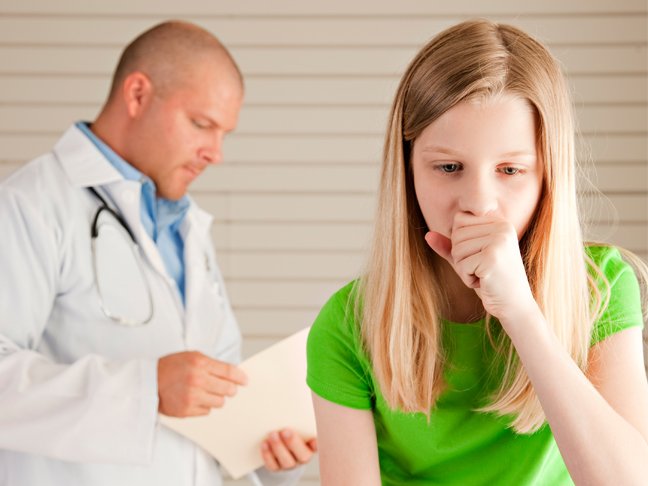
Wet cough is often accompanied by elevated temperature. This suggests that the body is fighting the infection with all its might. If the parents noticed the following signs in the child, you should immediately go to the hospital.
- Blood in secretions from the respiratory tract.
- Green tinge of sputum.
- High fever, more than 38 degrees.
- Wheezing.
- The appearance of shortness of breath.
- Refusal of food or water.
- Complaints of pain in the chest.
It is especially dangerous if a cough as such occurs in a child of the first year of life. At this early age in children, all processes occur incredibly quickly. That is, in the morning there was only a cough, and by lunchtime it can already develop into bronchitis or pneumonia. Can't be cured without antibiotics.
The main therapy for the occurrence of a productive cough:
- sputum thinning agent - ACC, Bromhexine;
- expectorant - Mukaltin, Broncholitin, licorice root;
- bed rest;
- drink plenty of water, but do not force the child to eat;
- inhalations with the use of saline or decoction of herbs;
- massage the back and chest of the child for better sputum discharge, pre-lubricate the hands with a medicinal ointment without a strong odor.
It is also believed that light rhythmic tapping on the ribs of the back contributes to a more complete expectoration in babies. Acupuncture medicine recommends applying pressure to certain points on the body. For example, behind the ears or points on the hands and shins.
The best effect can be achieved by giving children an expectorant on an empty stomach.
Folk remedies for cough for children
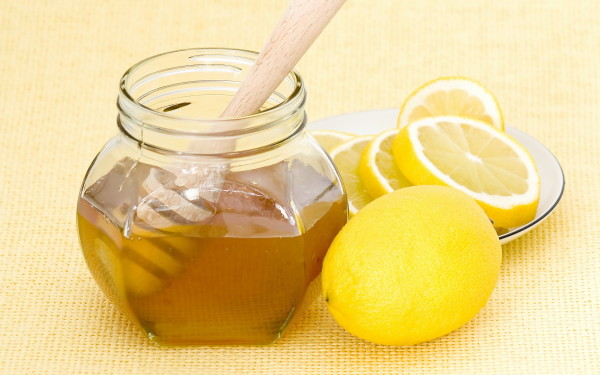
Traditional medicine recipes offer a large selection of home remedies for coughs. Starting with such simple things as mustard plasters, mustard in socks, jars, and ending with an oil compress for the night.
Here you can find the most effective folk recipes against cough.
- Take a black radish, make a hole in it and fill it with honey. After that, the radish should be left for a day so that the medicinal juice comes out. This is what you need to give the patient 1 teaspoon 3 times a day. You can mix the resulting juice with milk so that the taste is not so unpleasant.
- A medium-sized onion or a head of garlic should be cut and poured with half a liter of milk. Boil and let it brew for 4-5 hours. Take a tablespoon every 4 hours. Also, this remedy is famous as an excellent natural remedy.
- Decoction of flowers and leaves of coltsfoot or linden. Raw materials can be bought at any pharmacy. Brew at the rate of 1 tablespoon per cup of boiling water. Insist and take 100 ml before meals.
- Carrot or cabbage juice mixed with sugar. In a ratio of 1:2 and 1:1, respectively.
- Rub the back and chest of the child with badger or lard. Better to do at night. Wrap the child warmly and let him sleep.
- Onion juice and honey are good natural antiseptics. Onions can be substituted if desired. lemon juice or pulp of aloe.
- Milk with honey and cinnamon. If desired, honey and cinnamon can be replaced with figs. A powerful anti-inflammatory agent.
- Tea with raspberry jam.
- Inhalations with medicinal herbs. For example, thyme, sage, mint, succession, chamomile.
- Any berries, herbs with anti-inflammatory effect and honey. Make a compote out of all this and give the baby plenty to drink. Compote must be warm - do not irritate a sore throat with low temperatures.
- It is very useful for sick children to eat eggs. These are easily digestible proteins, vitamins B, A, D. You can prepare the following remedy - take 2 yolks, mix with 2 teaspoons of butter. Add to them 1 dessert spoon of flour or starch and honey to taste. Mix everything thoroughly and give the baby 1 teaspoon 4-5 times a day. Only eggs must be of high quality, fresh and preferably homemade!
When a cough occurs, accumulations of viruses, allergens, and foreign bodies act on the mucous membrane. It is this process that frees the airways, clears them.
Cough is dry and wet. Dry usually occurs with SARS, the initial stage of pneumonia, whooping cough, pleurisy, bronchial asthma. Wet appears in most wet bronchitis, pneumonia and some forms of tuberculosis.
Nutrition and care of the child during illness
Regular airing of the room in which the sick child is located, absence of tobacco smoke in the room, humidification of the air in the room, laying babies on the stomach (this stimulates the process of expectoration of sputum), vibration massage will help to cope with coughing faster. chest, breathing exercises. You can ask your child to inflate balloons, blow through a straw into a glass of water, so that bubbles float to the surface.
Coughing children benefit from eating liquid oatmeal, mashed potatoes with plenty of milk. An effective remedy with a similar disease is grapes, as it heals the lungs, promotes expectoration of sputum. You can drink grape juice with one teaspoon of honey. Do not give your child sugary drinks, especially carbonated drinks. Also, try to eliminate candy and other sugary foods from your baby's diet.
Of the drugs in the fight against children's cough, Linkas, Gedelix, Sinekod, Bronchipret, Erespal and other means will help. However, they have age restrictions and contraindications, so you can use them only after consulting your doctor.
home remedies for cough
Althea infusion is a fairly effective remedy for children's cough. A spoonful of a small leaf of medicinal marshmallow should be infused in a thermos for one hour, pouring a glass of boiling water. Give a sick child a teaspoon every 6 hours.
Eucalyptus leaves or oil can be used for inhalation. Brew the infusion in a mug, roll up a sheet of paper with a funnel. Put the wide end of the funnel on the mug, through the narrow end the child should inhale the steam.
A strong cough will calm and cure mineral water with milk. Pour hot milk and alkaline water in half into a glass. Hot milk with a spoonful of honey will help when coughing starts to tickle in the throat. For babies, it is better to add figs to warm milk.
Another delicious medicine will delight children, for the preparation of which you need to mix 100 g of honey and butter, add a bag of vanillin there, mix well. Give this remedy to children 1 teaspoon a day.
There are a lot of different cough remedies: tablets, syrups, and physiotherapy. How to treat a cough in a child of 6 years old, what exactly should be used, should be prescribed by a specialist who will first examine the child.
Why there is a cough: causes of seizures
Why can a child cough? The reasons may be different. The main ones are:
- mechanical effect on the mucous membrane;
- allergy;
- very dry indoor air;
- chemical impact;
- infectious diseases;
- inflammatory processes of the respiratory tract.
Mechanical impact is when dust, bread crumbs or other foreign body gets into the throat. Naturally, a reflex occurs, in which the body seeks to free itself from extraneous influences. The same goes for chemical exposure (perfume, spray or smoke). In this case, you just need to leave the place where the irritant is located. With dry air in the room, a cough can also occur, as the mucous membrane dries up and becomes irritated.
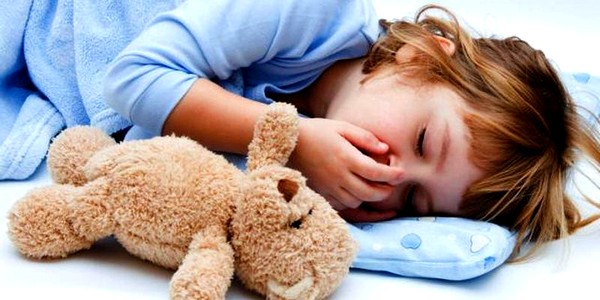
As for allergies, treatment is already required here. But not cough treatment, but getting rid of the main cause of allergies. Indeed, with such a reaction, not only a cough occurs, but also other unpleasant symptoms (runny nose, sneezing). Allergies should be treated with antihistamines, and if possible, avoid being near allergens (wool, pollen and other substances).
The most common cause cough - infection. At the beginning of the disease, the child has a dry cough, as bacteria and viruses act on the mucous membrane of the throat - they dry it. And later, with proper treatment, a dry cough turns into a wet one. Since cough is different, the treatment in different cases is different.
How to treat a cough in a child of 6 years old: medications
Medications are prescribed depending on the type of cough and its cause. With dry attacks, it is very important to translate the cough into a productive - wet. For this, drugs are used that help to accomplish this. In addition, with severe attacks, antitussives are used to relieve attacks. With a wet cough, mucolytics and expectorants are prescribed. Here the main goal is to thin and remove sputum.
Important! It is impossible to give antitussive drugs with a wet cough.
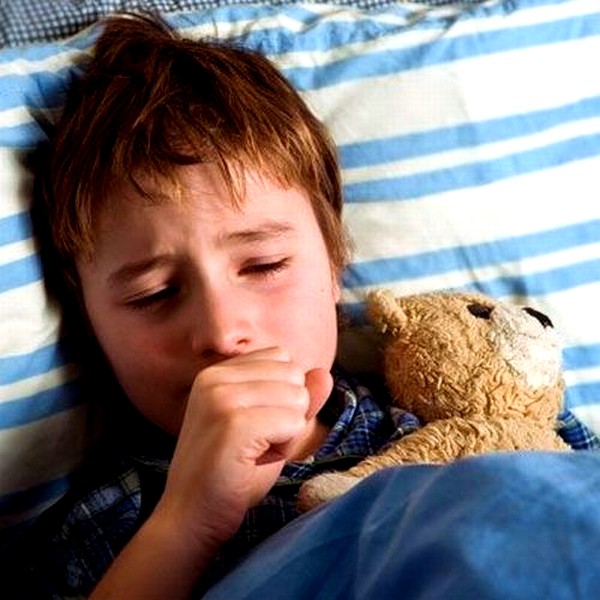
Here are the types of drugs that are used in the treatment:
- Antitussives. Such drugs relieve severe attacks (Bronchicum, Sedotussin).
- Mucolytics thin the mucus. Lazolvan or Ambrobene may be prescribed.
- Expectorants accelerate the process of sputum withdrawal (Pertussin, Mukaltin).
Bronchicum C is an antitussive phytopreparation. It has an antibacterial effect, and also relieves spasms during attacks. Available in the form of syrup and lozenges. The syrup can be used by children from 6 months, and lozenges are allowed for children 6 years old. It should be consumed 1 lozenge several times a day (no special instructions). Rash and hives may occur when using the medicine. Reception is not recommended for hypersensitivity to the components.
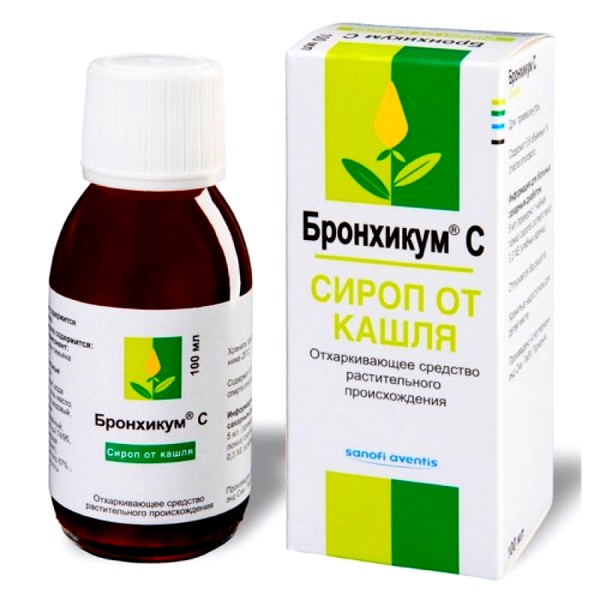
Sedotussin - has a weak anesthetic effect. You can use the remedy from 4 months with attacks of dry cough. Children 6-10 years old can drink 10 ml 3 times a day, at a different age the dose will be different. Side effects - nausea, dry mouth. You can not drink medicine for bronchial asthma and wet cough.
Lasolvan is produced in syrup. The remedy helps with coughs with very thick mucus, which is difficult to separate. Children 6-12 years old can drink 5 ml several times a day, with younger age- doses will be less. At reception pains in a stomach, a skin itch are possible. Of the contraindications - only hypersensitivity to the drug.
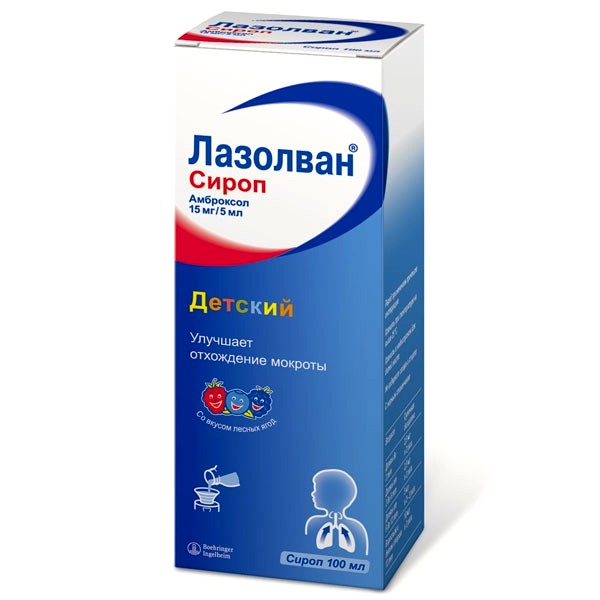
Ambrobene - the drug helps the mucus to become less thick, is used for acute and chronic diseases of the respiratory tract. The medicine is in the form of tablets and syrup. Tablets can be used from 6 years old - ½ tablet 2 times a day. As for the syrup, at the age of 6 years, you can use 2 ml a couple of times a day. When taking the medicine, you may experience nausea and vomiting. Do not use the remedy for kidney problems.
Pertussin is a syrup. Expectorant is used for wet cough. Children 6-12 years old can take 1-2 tsp. several times a day. Treatment usually lasts 2 weeks. Heartburn and allergies may occur.
Mukaltin is used to relieve bouts of wet cough. This is a herbal preparation. It can be used 1 tablet 3 times a day for children 3 years and older. From side effects mild nausea and mild allergies are possible. There are almost no contraindications, but the remedy is not recommended for children under one year old.
There are other medicines that help with coughing fits. The attending physician will decide on the appointment of certain drugs and a specific dose. Follow the instructions strictly, as you can get the opposite effect.
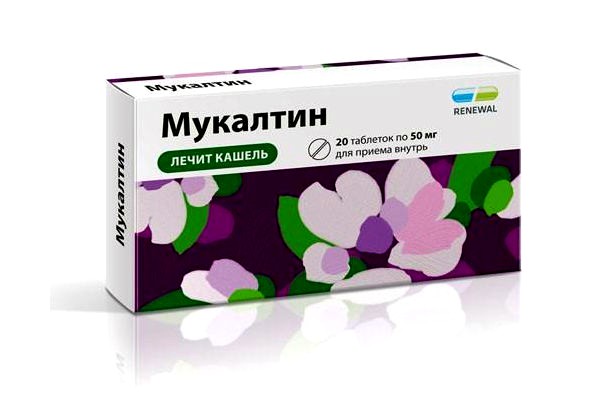
Nuance! You should adhere to the course of treatment prescribed by your doctor, since drugs are allowed to be taken for a limited number of days.
How to treat a cough in a child of 6 years old: other means
Of course, during treatment, the doctor may prescribe various physiotherapy procedures. These include:
- Inhalations. This is treatment with drugs that enter the respiratory tract in the form of vapor without affecting the bloodstream and various organs (usually prescribed Berotek, Berodual).
- Magnetotherapy - impact magnetic field on a certain area, has an anti-inflammatory and analgesic effect.
- Electrophoresis with medicinal herbs. Medicines or decoctions of herbs break down into ions and act on the body, penetrating through the pores and sebaceous glands (using herbal preparations).
- Massage - this procedure improves blood circulation and helps to move mucus faster.
All these procedures help in the treatment, so specialists are usually not limited to drugs. Complex treatment will be more efficient.
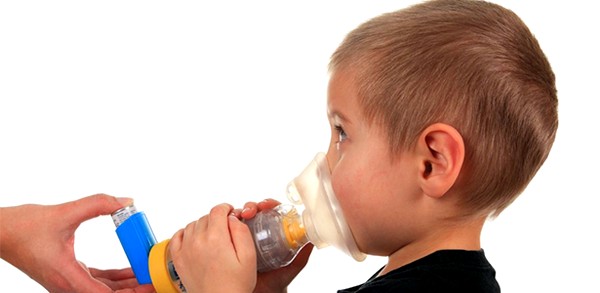
Folk remedies for cough
First of all, you need to give your child plenty to drink. It can be compotes and fruit drinks, mineral water is also allowed. A large number of liquid will help the mucus thin, which means it will come out faster. In addition, in the room where the child is located, it is necessary to carry out wet cleaning more often and, in general, the room should be well ventilated and humidified. This will help speed up the healing process.
In addition, special folk remedies will help. When a child is 6 years old, a dry cough than to be treated can be resolved quickly. A strong dry cough will help to remove milk from mineral water. It is necessary to mix these liquids in the same amount and drink little by little, but often. The throat will soften, the cough will begin to turn from dry to wet.
In a glass of warm milk, dissolve 1 teaspoon of honey and butter. You need to drink a glass a day 20 minutes before meals. Milk should not be hot, otherwise perspiration and irritation will increase.
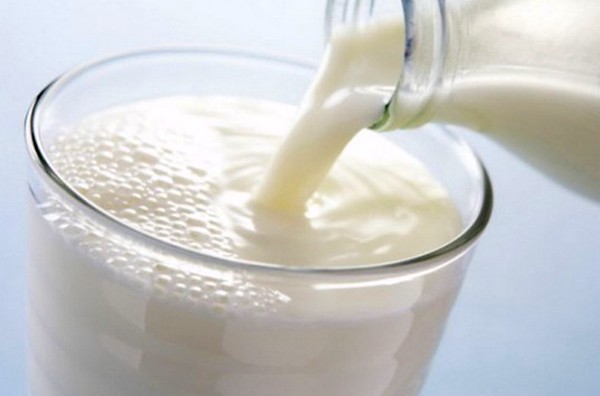
Milk can be prepared in other ways. It must be heated to 50˚C, then add chicken yolk and a tablespoon of honey. It is necessary to drink in small sips after meals, 2 times a day is enough. The child may not like this medicine, but it is quite effective.
Black radish with honey is a proven remedy. The vegetable should be cut into slices and sprinkled with sugar. Bake in the oven for two hours, then strain and drink the liquid in a tablespoon 4 times a day. You can simply cut a recess in the radish and put a spoonful of honey there, after 3 hours the radish will release juice, you need to drink it in a spoonful.
Fact! A child can be allergic to any product, so you need to monitor the reaction when taking a new remedy.
With a wet cough, other recipes will help. For example, a mixture of honey, aloe juice and lingonberry juice is effective. All ingredients must be taken in equal proportions and mixed. Use a spoonful 2 times a day.
Beets should be cut into pieces and add 4 tbsp. spoons of sugar. Insist for a day. Then give a teaspoon twice a day. This medicine has a sweet taste and bright color so your child will love it.
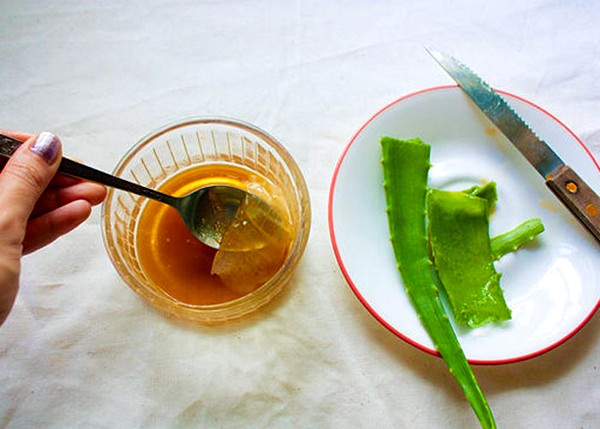
Pour 50 g of raisins with boiling water (one glass). Leave the mixture for half an hour, then add 3 tbsp. spoons of onion juice. Mix everything well and drink at night (at least half a glass). The method is very effective, but the smell of the medicine is harsh.
You can choose one folk remedy or alternate them. The main thing is that the child does not refuse to take home medicines. If you treat a cough using both medicines and folk remedies, recovery will be quick.
